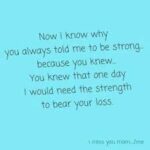Five Years as a Widow: A Journey of Grief, Growth, and Resilience
It’s hard to believe that five years have passed since I became a widow. In some ways, it feels like it was just yesterday when my world turned upside down. The love of my life, the person I thought I’d grow old with, was suddenly gone, leaving me to navigate a life I never imagined I’d have to live.
In those early days after his death, everything felt overwhelming. Grief, like a constant shadow, clung to me. Each day was an emotional rollercoaster. I would wake up and feel as though I had a momentary reprieve, only for the reality to come crashing back in as soon as I remembered that he was gone.
But over time, things changed. It wasn’t that the pain went away—I don’t think it ever does—but I began to find ways to live with it, to coexist with the loss in a way that didn’t completely define me.
The First Year: Surviving the Storm
The first year was the hardest. I had no blueprint for widowhood, no guide to help me through the process. Every anniversary, every holiday, every shared memory seemed to be a reminder of what I no longer had. I spent much of that time simply surviving. I’d wake up, go through the motions, and collapse into bed, exhausted from the emotional weight of it all.
One of the hardest parts was facing the silence in my home. His laughter, his voice, the rhythm of everyday life together—they were gone. It felt like an emptiness that would never be filled. Yet, there were moments of beauty too. I remember the simple act of taking a walk in the park, feeling the warmth of the sun on my face and realizing that I could still feel joy, even amidst the grief.
The Second and Third Years: Learning to Live Again
By the second year, I began to realize that I had to start living again. I wasn’t going to bring him back, no matter how badly I wished I could. But I could choose how I moved forward. Slowly, I started to rediscover who I was outside of being his wife. I took up new hobbies, reconnected with friends, and began focusing on my own growth.
The second year was about rebuilding my identity. I had always been “us” in my mind—his wife, his partner. Now, I was just me. It was a strange and difficult transition. There were moments of guilt, as though I was betraying his memory by moving forward without him. But there were also moments of peace, when I felt proud of my resilience, of my ability to take each step, no matter how small.
The third year was when I began to notice the subtle shifts in my grief. I still missed him every single day, but I didn’t feel quite as consumed by the sorrow. I started to embrace the idea that grief wasn’t something to “get over.” It was something to carry with me, something that became a part of who I was, but not the only thing that defined me.
The Fourth and Fifth Years: Finding Strength and Hope
By the time I reached the fourth and fifth years, I had begun to look at my life through a different lens. I realized that widowhood, while painful, had taught me so much about resilience, about the strength I had within me that I didn’t even know existed. I learned to trust myself again, to make decisions for myself, to prioritize my own needs.
There were days, of course, when the sadness still came rushing back. Milestones like birthdays, anniversaries, and holidays were still difficult. But they became less about the sorrow of what I had lost and more about honoring the love we had shared. I learned that grief and love aren’t mutually exclusive; they can exist together, intertwining to form something deep and meaningful.
I also found new ways to give back to the world. Whether through volunteering, supporting other widows, or simply offering a listening ear to a friend in need, I realized that my experiences, painful as they were, had a purpose. My pain had made me more compassionate, more understanding, and more willing to help others who were suffering.
A Journey, Not a Destination
As I reflect on the five years since my husband’s passing, I realize that widowhood is not a journey with a clear endpoint. It’s an ongoing process of healing, of learning to live with the scars while still embracing the fullness of life. Some days are easier than others, and I’ve learned to be gentle with myself when the weight of grief feels heavier than usual.
What I know for sure is this: I am not the same person I was before. I have been changed by this experience, and though it’s been painful, I’ve come to understand that it has also shaped me into a stronger, more resilient version of myself.
To anyone reading this who is also walking the path of widowhood, I want to say: You are not alone. The road is long, and there will be days when it feels impossible to continue. But trust me, there is light, even in the darkest of times. And though we will never “get over” our loss, we can learn to live with it, to honor it, and to find new meaning in our lives.
As I look ahead to the future, I do so with hope. Hope that I can continue to grow, to love, and to find joy again. It won’t be the same as before, but it will be mine. And for that, I am deeply grateful.


